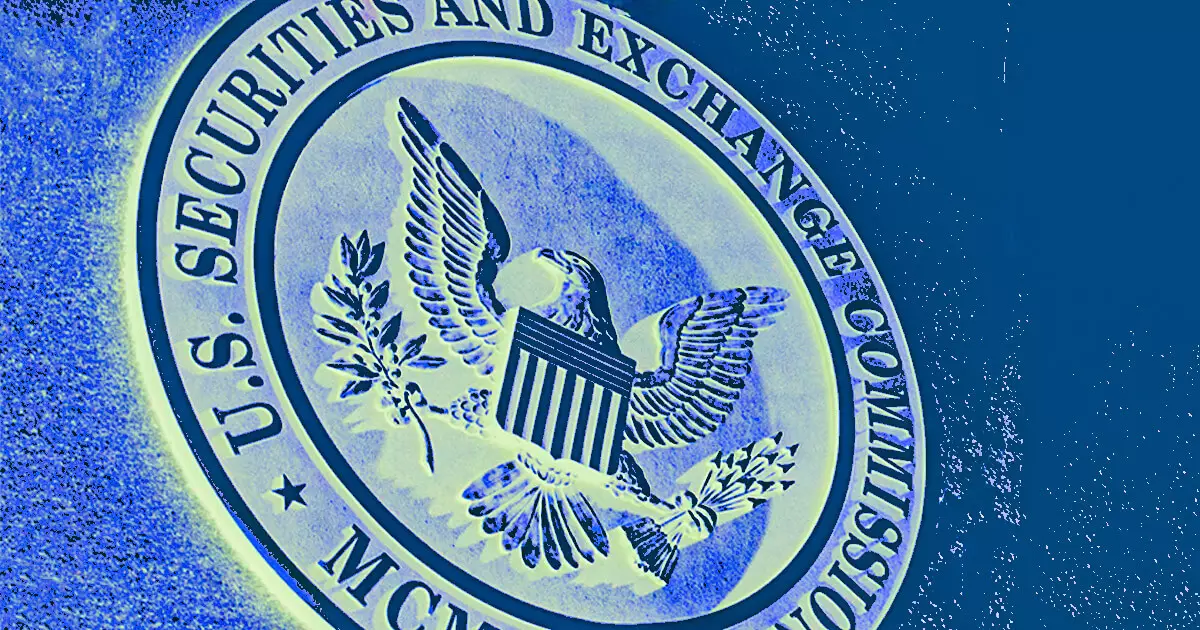The realm of digital assets has expanded rapidly in recent years, compelling regulators to navigate a complex landscape fraught with innovation and ambiguity. A recent enforcement action taken by the U.S. Securities and Exchange Commission (SEC) against the Flyfish Club’s non-fungible token (NFT) collection stirs substantial debate within the regulatory sphere, with dissenting views from within the SEC itself. Commissioners Hester M. Peirce and Mark T. Uyeda have raised serious objections to the application of securities laws in this particular case, arguing that the regulation might not only misinterpret the utility of NFTs but also establish an unsettling precedent for future digital asset innovations.
The Flyfish Club, marketed as an exclusive dining experience, has drawn attention not merely for its gastronomic offerings but for the creative fundraising via NFTs. By introducing approximately 3,000 NFTs, the club successfully attracted investments of varying amounts—$8,400 for standard NFTs and $14,300 for premium Omakase NFTs—culminating in a remarkable $14.8 million in sales, alongside an extra $2.7 million from secondary sales. The SEC has asserted that Flyfish Club’s approach to these NFTs constitutes an unregistered offering of crypto asset securities, which led to a settlement involving a substantial civil penalty and a cease-and-desist order.
In a provocative dissent, Peirce and Uyeda liken the trust required in Omakase dining to the trust that should be extended to regulatory bodies. They express concern that the SEC’s stance undermines public confidence in regulatory frameworks. By branding the Flyfish NFTs as utility tokens rather than securities, they advocate for a more nuanced understanding of the innovation at hand. The commissioners highlight the impracticality of applying the Howey Test—a framework historically utilized to determine if an asset qualifies as a security—on the basis that buyers anticipated engaging in unique culinary experiences rather than seeking investment profits.
The implications of the SEC’s enforcement actions extend beyond Flyfish Club; they reverberate through the NFT marketplace as a whole. The regulator’s recent warning to the prominent NFT platform OpenSea, suggesting it was facilitating the sale of unregistered securities, echoes a chilling sentiment among creators within the space. CEO Devin Finzer’s response illustrates a collective resistance against perceived regulatory overreach. As Finzer contends, such actions jeopardize not only the businesses involved but also the broader community of creators and artists who thrive on innovation and expression within their digital art forms.
In light of these events, both Peirce and Uyeda assert a pivotal need for the SEC to provide clearer guidelines for NFT creators to foster a nurturing environment that allows for experimentation without the pall of legal repercussions looming overhead. The establishment of the $6 million Creator Defense Fund by the Coinbase-backed Stand With Crypto Alliance indicates a growing acknowledgment within the community regarding the potential negative impact of stringent regulations. Ultimately, addressing the current regulatory uncertainty will be crucial in encouraging a thriving, innovative landscape for NFTs and similar digital assets.
By taking a step back to reassess the regulatory framework surrounding NFTs, stakeholders—including regulators, creators, and consumers—can work towards a future where innovation and compliance coexist harmoniously.














